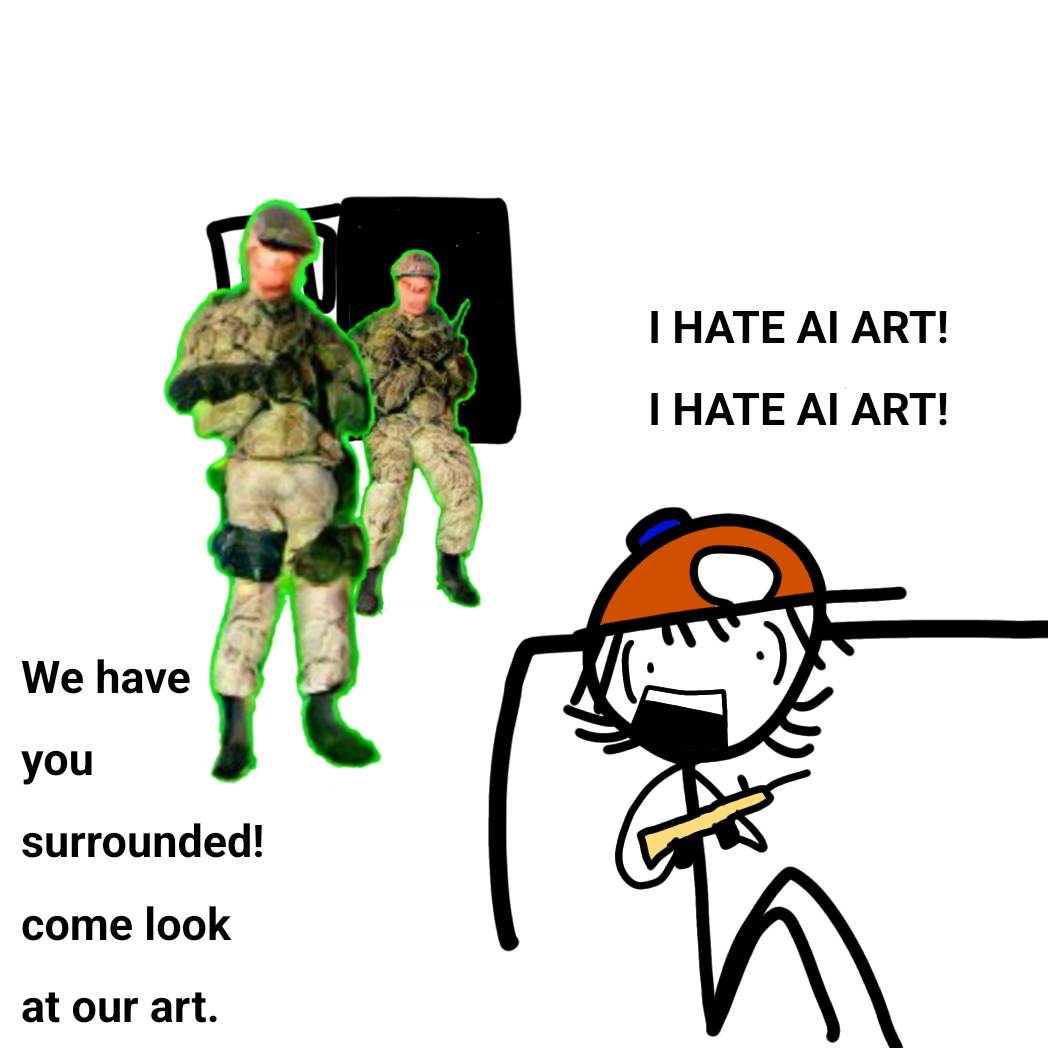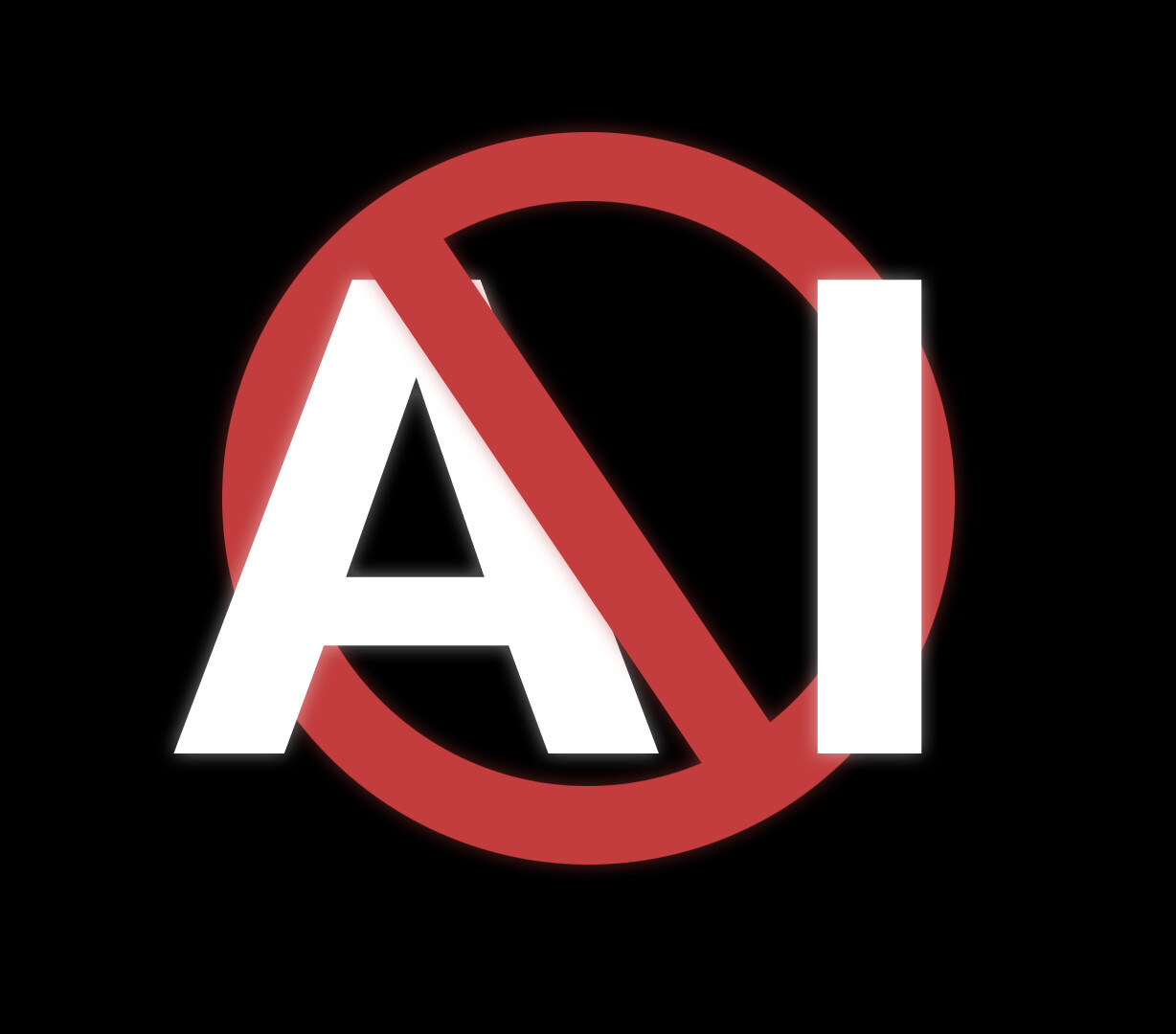The phrase "I hate AI art" echoes through online communities, a sentiment often dismissed by technology enthusiasts as mere Luddism or a lack of understanding. Yet, this intense aversion is far more complex than simple dislike; it's a powerful emotional response rooted in fear, anger, and a profound sense of injury to the very essence of human creativity. It's a feeling that resonates deeply with many, particularly those who dedicate their lives to the craft of art, viewing it as an inherently human endeavor.
This passionate opposition isn't just about disliking a new technology; it’s about a perceived threat to livelihoods, artistic integrity, and the fundamental definition of what art truly is. To understand why so many feel this way, we must delve into the complexities of this "hate," exploring its roots and the legitimate concerns that fuel such a strong reaction against the rapid proliferation of AI-generated imagery. This isn't just a fleeting trend; it's a deeply felt conviction for many in the creative community.
Table of Contents
- The Roots of Hate: Understanding the Emotion
- Art vs. Algorithm: The Human Touch
- The Ethical Quandary of AI Art
- A Threat to Livelihoods and Opportunities
- The Misguided Narrative and "AI Bros"
- Creativity: A Uniquely Human Trait?
- It Isn't AI I Hate, It's Our Lack of Control
- Navigating the Future of Art and AI
The Roots of Hate: Understanding the Emotion
When someone declares, "I hate AI art," they are often expressing an intense negative emotional response, akin to the definition of hatred itself: "intense hostility and aversion usually deriving from fear, anger, or sense of injury." This isn't a casual dislike; it's a deeply felt opposition, often "related to opposition or revulsion toward something." For many artists, the rapid proliferation of generative AI art feels like a direct assault, a "sense of injury" to their identity, their craft, and their future. It involves an "appraisal that a person or group is evil," or in this case, that the technology and its proponents are acting in ways that are fundamentally detrimental to the artistic community. The motivation behind such strong feelings is often "to eliminate" the perceived threat, or at least to curb its negative impacts. This isn't just about disliking something "very much" or "intensely or passionately"; it's a powerful, visceral reaction to a perceived existential threat to their profession and passion. This "hate" is a "powerfully strong verb," and it's being used precisely because the feeling is so profound and deeply rooted in legitimate concerns about the future of human creativity and livelihood. It’s an emotion that signals a fundamental clash of values, where the perceived soulless efficiency of algorithms collides with the deeply human and often arduous journey of artistic creation. Understanding this emotional depth is crucial to grasping why the sentiment "I hate AI art" is so prevalent and potent.
Art vs. Algorithm: The Human Touch
At the core of the "I hate AI art" sentiment lies a fundamental disagreement about the nature of art itself. For centuries, art has been understood as a profoundly human endeavor, a unique expression of an individual's thoughts, feelings, experiences, and skills. "Art is made by humans who spent years crafting their skills." It is a testament to dedication, practice, and a deeply personal journey of development. The brushstrokes, the composition, the choice of color, the narrative woven into an image – these are all imbued with the artist's humanity, their struggles, their triumphs, and their unique perspective on the world. It is "a human thing where humans express" their inner worlds, their interpretations of reality, or their imaginative escapes. The very act of creation is intertwined with the human condition, making the resulting artwork a mirror of the soul, a piece of the creator made tangible. This inherent human connection is what many believe is fundamentally missing from AI-generated images, leading to the strong aversion expressed as "I hate AI art."
The Craft of Human Creation
The creation of art is not merely about producing an image; it is about the process, the intention, and the human narrative behind it. An artist spends countless hours honing their craft, learning anatomy, color theory, perspective, and composition. They develop a unique style, a visual language that is distinctly their own, forged through years of trial and error, success and failure. This journey of skill development is what gives human art its depth and resonance. When we look at a painting by a master, we don't just see the final product; we sense the decades of dedication, the emotional investment, and the unique human spirit that poured into its creation. Every line, every shade, every texture tells a story not just of the subject, but of the artist's journey. This intrinsic value, born from human effort and experience, from the very "complexities of hate, its roots, and its impact on mental and physical health" that an artist might explore through their work, is what many feel is utterly absent in AI-generated images. It's this profound difference in origin and intent that makes many declare, "I hate AI art."
Algorithmic Assembly, Not Expression
In stark contrast, AI-generated "images are made by computer algorithm." They are the result of complex mathematical computations, pattern recognition, and data synthesis, not human experience or emotional expression. While impressive in their ability to mimic styles and generate novel compositions, they lack the intentionality, the struggle, and the personal narrative that define human art. An algorithm doesn't "feel" or "express"; it processes and generates based on vast datasets. This distinction is crucial for those who "believe that creativity is a uniquely human characteristic." They argue that what AI produces, while visually compelling, is merely a sophisticated pastiche, a derivative compilation of existing human works, rather than a genuine act of creation stemming from an internal human impulse. This fundamental difference is a core reason why many feel such intense aversion, leading them to declare, "I hate AI art." They see it as a mechanical process, devoid of the soul and unique perspective that only a human creator can imbue into their work. The output might be visually similar, but the essence, the very 'why' behind it, is fundamentally different.
The Ethical Quandary of AI Art
Beyond the philosophical debate on the nature of art, a significant portion of the "I hate AI art" sentiment stems from profound ethical concerns. The methods by which many generative AI models are trained have raised red flags for artists worldwide. These models learn by ingesting massive amounts of existing images, many of which are copyrighted works created by human artists without their consent or compensation. This practice is often perceived as a form of theft, undermining the very foundation of intellectual property and fair use. The feeling is that AI is "stealing from artists" by leveraging their life's work without permission or remuneration, essentially commodifying their unique styles and expressions for profit. This isn't a minor grievance; it's a fundamental challenge to the rights of creators and the established norms of artistic ownership. The lack of clear legal frameworks and the rapid deployment of these technologies without artist consent contribute significantly to the intense "hate" directed at AI art.
Concerns Over Data and Compensation
The lack of transparency regarding training data is a major point of contention. Artists often feel powerless as their unique styles and bodies of work are potentially absorbed into these models, only to be regurgitated in new forms that compete directly with their own creations. This raises serious questions about who benefits from this new technology and who bears the cost. If an AI model can generate an image in the distinct style of a living artist, effectively bypassing the need to commission that artist, it creates an unfair competitive landscape. This perceived exploitation fuels a deep sense of resentment and anger, contributing to the strong "hate" many feel towards the technology and its applications in art. There's a palpable fear that the very source material that makes AI art possible is being used without proper attribution or compensation, leading to a system where the original creators are disenfranchised while tech companies profit. This perceived injustice is a powerful driver of the "I hate AI art" movement.
The Devaluation of Human Skill
Another ethical concern revolves around the potential devaluation of human artistic skill. If AI can produce visually striking images in seconds, what does that mean for artists who have spent years, even decades, perfecting their craft? The worry is that the market will increasingly favor speed and low cost over human talent and originality. This leads to a fear that "audiences will value the" immediate gratification and affordability of AI over the nuanced, deeply personal work of human artists. This devaluation isn't just financial; it's also a blow to the perceived worth and significance of artistic endeavor itself. The very notion that an algorithm can replicate or even surpass human creativity is seen by some as an affront, reinforcing the "I hate AI art" stance. It suggests that the painstaking effort and unique vision of an artist can be rendered obsolete by a machine, diminishing the perceived value of human artistic contribution in the broader cultural landscape. This profound blow to artistic pride and purpose is a significant factor in the strong negative emotions expressed.
A Threat to Livelihoods and Opportunities
Perhaps the most immediate and tangible reason for the widespread "I hate AI art" sentiment among artists is the very real threat to their livelihoods. "Many artists are rightfully concerned that AI could take over numerous creative tasks or processes, leading to losing opportunities and control over their work." This isn't an abstract fear; it's a pragmatic worry about job displacement in fields like illustration, graphic design, concept art, and even photography. If clients can generate high-quality images instantly and cheaply, the demand for human artists could diminish significantly, leading to economic hardship for countless individuals who rely on their artistic skills to make a living. The economic implications are dire, transforming a passionate career into an increasingly precarious one.
The concern isn't just about losing existing jobs but also about the erosion of future opportunities. Young artists entering the field might find a landscape where the entry-level work, traditionally used to build portfolios and gain experience, is increasingly automated. This economic anxiety is a powerful driver of the negative emotions associated with AI art. It’s not just about a philosophical debate; it’s about putting food on the table and maintaining a career built on passion and skill. The potential for widespread job loss and the undermining of an entire creative industry is a legitimate and deeply unsettling prospect, fueling



Detail Author:
- Name : Paris Stroman
- Username : anna.champlin
- Email : calista23@koch.info
- Birthdate : 1983-05-18
- Address : 18719 Elton Row Apt. 885 Hermanmouth, MI 45657-2924
- Phone : +1.878.833.8192
- Company : Considine-Heaney
- Job : Council
- Bio : Qui nihil repellat quibusdam distinctio in. Ut atque in voluptatem ullam sit. Autem est quibusdam accusamus ratione numquam est.
Socials
tiktok:
- url : https://tiktok.com/@adouglas
- username : adouglas
- bio : Autem eum quia inventore vel est voluptatem quaerat fuga.
- followers : 6715
- following : 1855
twitter:
- url : https://twitter.com/douglas2001
- username : douglas2001
- bio : Aut error dolores non. Nobis error culpa et sint commodi voluptatem officia. Quod rerum et eaque. Nesciunt ut a qui nihil ipsa iste est magnam.
- followers : 4516
- following : 742
linkedin:
- url : https://linkedin.com/in/douglas1974
- username : douglas1974
- bio : Molestiae eaque aut magnam perspiciatis.
- followers : 5533
- following : 845
facebook:
- url : https://facebook.com/arnolddouglas
- username : arnolddouglas
- bio : Ratione delectus asperiores aut.
- followers : 4027
- following : 1526
instagram:
- url : https://instagram.com/arnold_xx
- username : arnold_xx
- bio : Nisi quia atque blanditiis. Sed ut similique sed laborum sed quod atque.
- followers : 267
- following : 1832